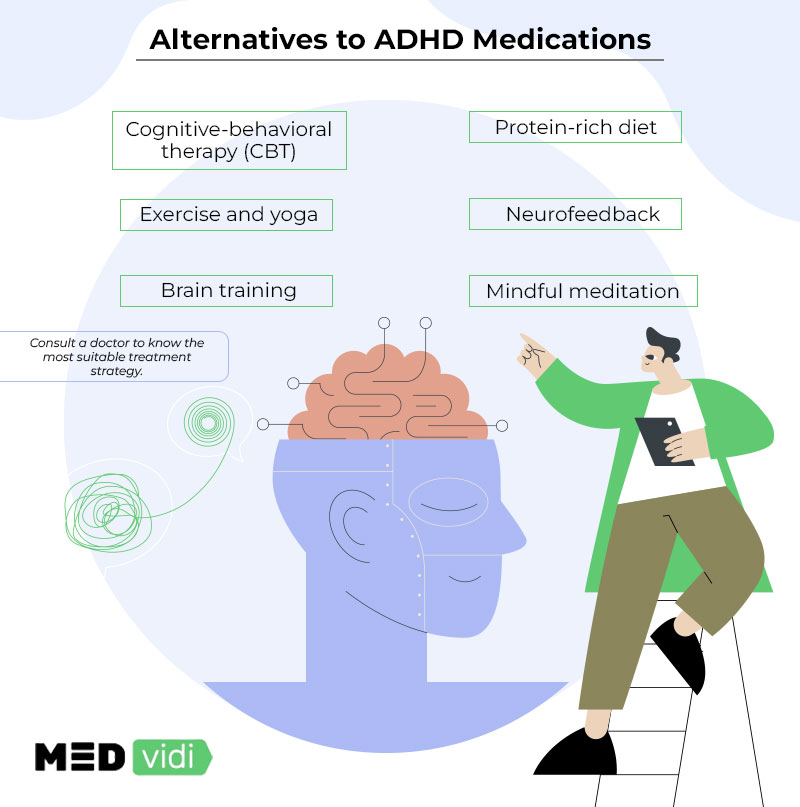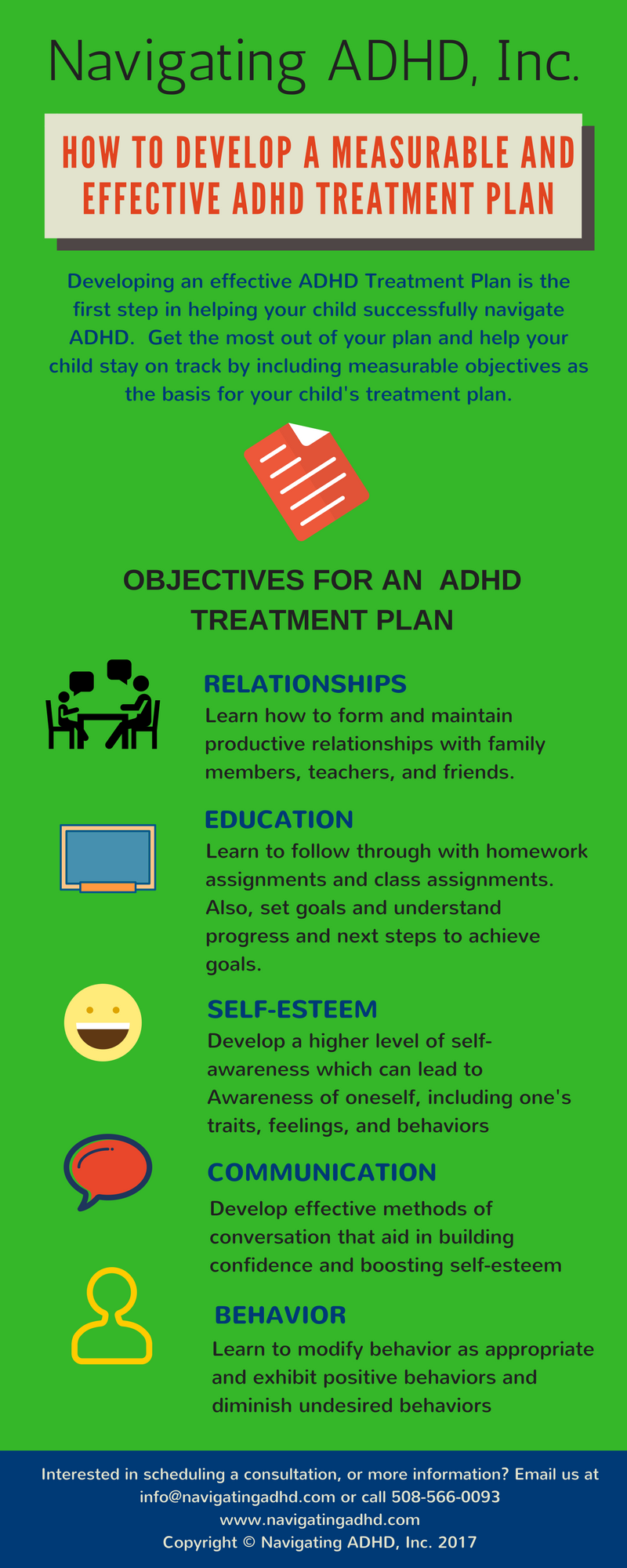Exploring Effective ADHD Treatment Options for All Ages
The complexities of Attention deficit disorder (ADHD) present one-of-a-kind obstacles throughout various age groups, necessitating an extensive exploration of efficient therapy options. A mix of behavior treatments, pharmacological interventions, and way of life adjustments has shown promise in resolving the diverse requirements of individuals with ADHD. The efficiency of these methods can vary substantially based on individual conditions, raising critical questions regarding customized techniques. As we analyze the spectrum of treatment techniques offered, it becomes important to think about not just their prompt influences however also their lasting effects for individuals and family members.
Understanding ADHD and Its Effect
Attention-Deficit/Hyperactivity Problem (ADHD) is a neurodevelopmental problem defined by relentless patterns of negligence, hyperactivity, and impulsivity that can significantly influence different aspects of a person's life. It usually manifests in youth, although signs and symptoms can continue right into the adult years. The core symptoms of ADHD can interfere with instructional efficiency, hinder social interactions, and make complex occupational endeavors.
Individuals with ADHD often have problem with maintaining concentrate on tasks, organizing activities, and following through on directions, which can result in scholastic underachievement (Depression Treatment). In social contexts, impulsivity may cause troubles in forming and sustaining partnerships, as people may disrupt discussions or make rash decisions without taking into consideration consequences
Additionally, ADHD can co-occur with other psychological health and wellness conditions, such as anxiousness and depression, additionally making complex medical diagnosis and treatment. The variability in sign discussion means that ADHD can affect individuals in a different way, necessitating a personalized approach to management. Comprehending ADHD's diverse impact is critical for developing effective methods that sustain people in browsing everyday challenges and accomplishing their capacity. Comprehensive understanding of ADHD's nature and effects prepares for exploring suitable treatment options tailored to each individual's requirements.
Behavioral Therapies for ADHD
Many behavioral treatments have actually been created to efficiently attend to the difficulties associated with ADHD, concentrating on changing certain actions and promoting important abilities. Amongst the most acknowledged methods are cognitive-behavioral therapy (CBT), parent training, and social abilities training.
CBT aids individuals identify and alter adverse idea patterns and actions, advertising an extra favorable outlook and enhanced self-regulation. This therapy frequently consists of practical methods for handling impulsivity and boosting company. Moms and dad training programs equip caregivers by equipping them with strategies to enhance positive actions and set regular boundaries, which can be particularly useful for kids with ADHD.
Social abilities training is an additional important component, mentor people with ADHD exactly how to connect efficiently with peers - Depression Treatment. This method typically entails role-playing and feedback to improve interaction, teamwork, and conflict resolution skills
Incorporating these behavior therapies right into an extensive treatment plan can significantly enhance working and lifestyle for people with ADHD. Inevitably, the performance of these therapies depends upon customized methods that think about the one-of-a-kind demands of each person, consequently fostering resilience and versatility in day-to-day live.
Drug Options Available
For numerous individuals with ADHD, drug can play a significant role in handling signs and symptoms and boosting general performance. The two main groups of drugs prescribed for ADHD are stimulants and non-stimulants.
Stimulants, such as methylphenidate and amphetamine-based medicines, are the most frequently made use of see this therapies. These medicines function by increasing the levels of neurotransmitters, specifically dopamine and norepinephrine, in the brain, which helps improve attention and reduce impulsivity and hyperactivity. They typically produce rapid results, making them a favored choice for numerous individuals.

It is important for health care companies to conduct a thorough analysis to identify one of the most appropriate medication based upon private demands, case history, and prospective side results. Regular follow-up and monitoring are also vital to make certain the performance of the picked therapy and to make any kind of necessary modifications.
Way Of Life Modifications to Think About
Handling ADHD efficiently prolongs my website beyond medication, as way of life modifications can dramatically boost general wellness and sign control. Integrating organized routines is essential; regular timetables aid people with ADHD manage their time efficiently and reduce sensations of bewilder.
Routine exercise is another important part. Workout not only aids to boost concentration but also enhances state of mind and decreases stress degrees. Activities such as yoga or group sports can be particularly beneficial, advertising both physical conditioning and social interaction.
Nourishment also plays a pivotal duty. Depression Treatment. A balanced diet regimen rich in omega-3 fatty acids, entire grains, and lean proteins can add to improved emphasis and cognitive function. Restricting sugar and processed foods is suggested, as these can worsen hyperactivity and impulsivity
Sleep health is necessary for managing ADHD signs. Developing a regular sleep timetable and creating a restful setting can enhance sleep high quality, bring about better interest and psychological regulation.
Different and Holistic Techniques
Different and holistic methods to ADHD treatment supply a diverse variety of alternatives that complement traditional approaches. These strategies usually concentrate on lifestyle adjustments, nutritional treatments, and restorative practices that intend to boost total well-being while addressing ADHD signs and symptoms.

Mindfulness and behavioral therapies are additionally acquiring grip as holistic interventions. Practices such as yoga exercise, reflection, and cognitive-behavioral treatment can cultivate self-regulation and improve interest. These approaches sustain emotional durability, which is especially valuable for individuals with ADHD.
Herbal supplements, such as ginkgo biloba and ginseng, are often discovered; nonetheless, it is critical to speak with health care experts prior to integrating these right into therapy strategies. While choice and all natural approaches can offer useful support, they must preferably be utilized combined with evidence-based treatments to accomplish ideal results for handling ADHD across any ages.
Final Thought
In summary, effective ADHD treatment necessitates a comprehensive approach that includes behavior treatments, medicine, way of life adjustments, and alternative methods. Tailored treatments can considerably improve individuals' working and quality of life, while ideal medication ensures ideal symptom monitoring. In addition, embracing organized routines, taking part click this in regular exercise, and exercising mindfulness can improve psychological guideline and interest. This complex approach highlights the importance of individualized care in attending to the diverse demands of individuals with ADHD across any age groups.